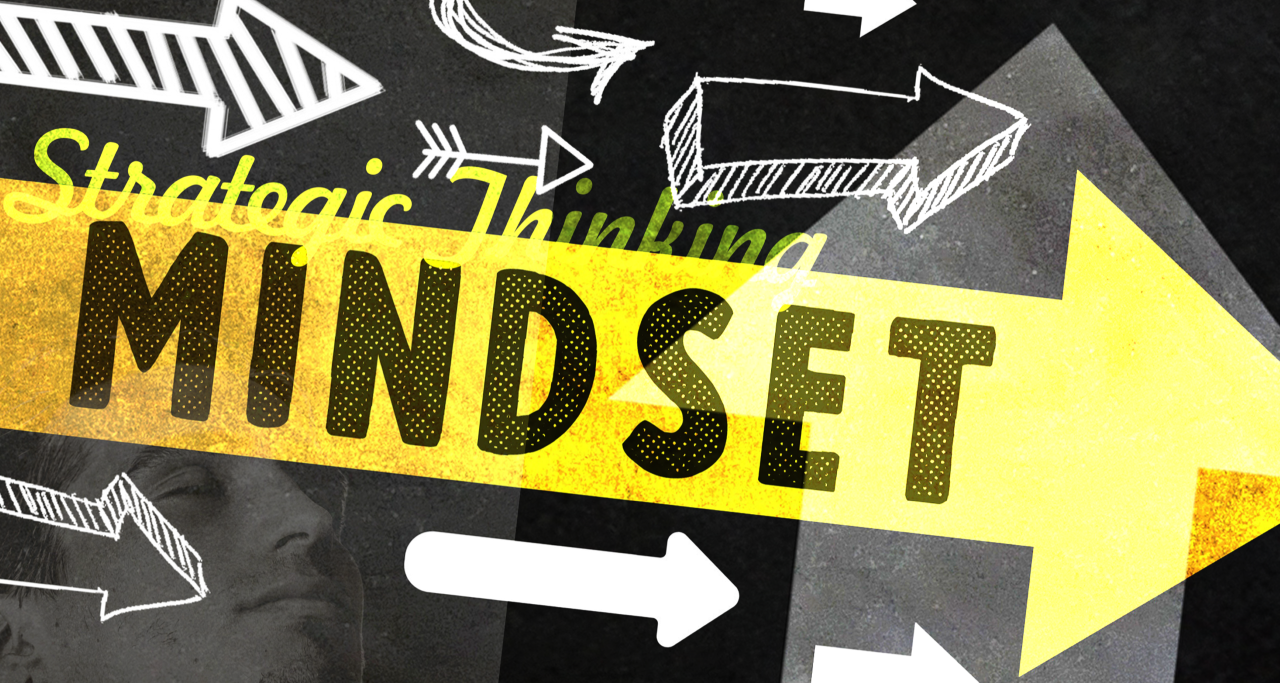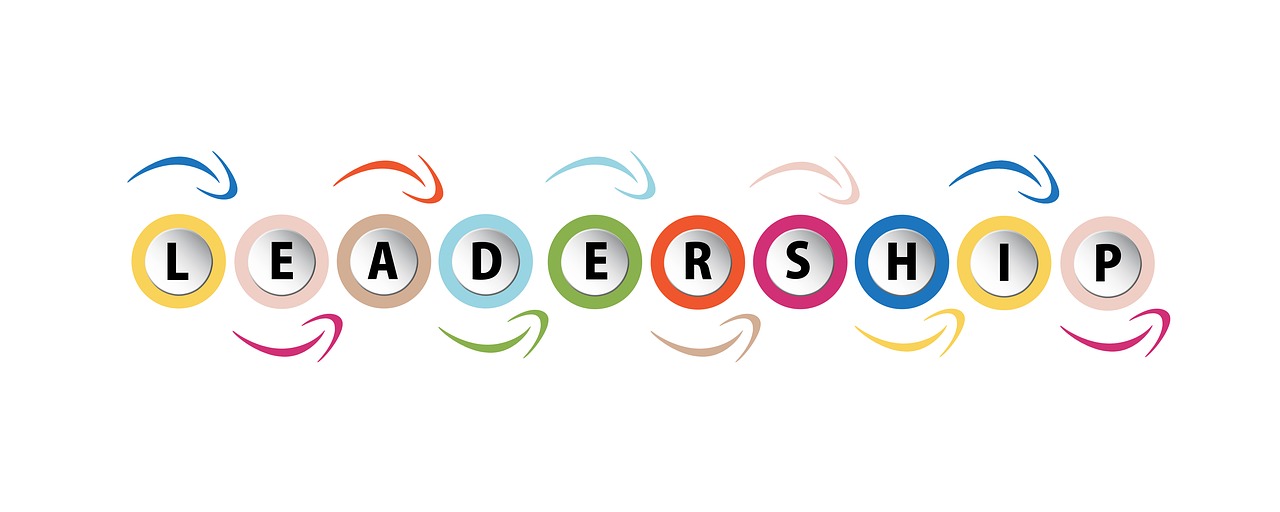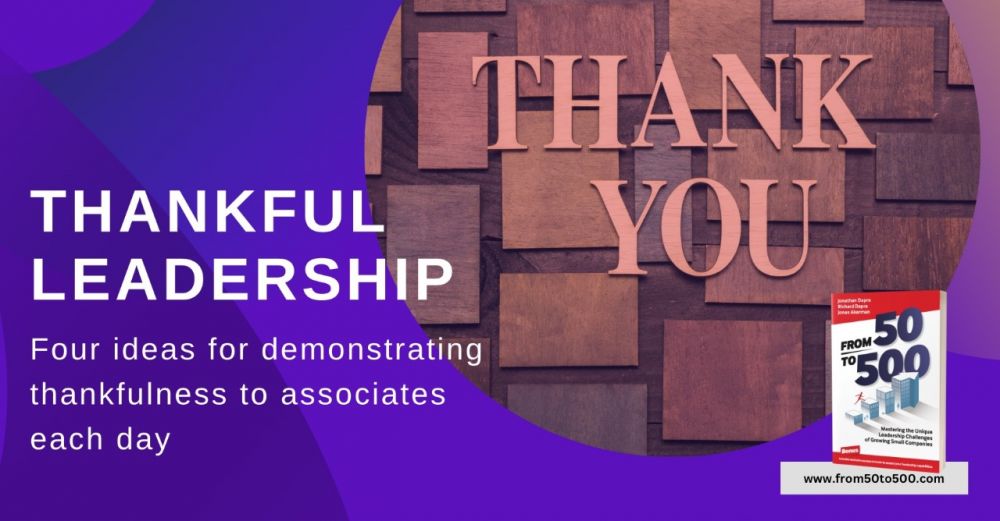Small Business Leadership Blog
Too Fast or Too Slow – Growth Can Still Cause the Same Cash-Flow Problem
Over the past few months, I’ve come across two companies facing serious cash-flow challenges but for completely opposite reasons. As I’ve discussed in previous blogs, cash flow is one of the most common challenges for growing companies. When you read the cases you may think they have cash issues because they are fairly new and small in size. However, in both of these examples the companies have been around for a while and both are in the hundreds with regards to number of employees.
Strategic Thinking in Your Decision Making
Businesspeople in all sizes of growing companies, routinely encounter tough decisions, challenging problems, and complicated situations. In an ideal world, leaders could rely on highly structured frameworks supported by rich datasets to point them toward great choices.
Beyond a Feeling: Emotional Intelligence Is Not the Holy Grail of Assessment
Emotional intelligence (EI) is a term thrown around often, especially in professional development. We’re told that those with high EI are better leaders, better communicators, and, overall, more successful. But is there actual science behind the hype?
10 Tips to Scaling a Small/Midsized Business
Hardly anyone focuses on the challenges you have as a leader of a small business that is established and growing. It really doesn’t matter if you are a leader with around 20 employees and growing or 100 employees and growing. After working with tens of thousands of leaders over the last 25 years, research, and my own experience growing a business to around $100M, I have these 10 tips for scaling your small to midsized business.
Listen to Refine and Grow Podcast with Jonas Akerman
Listen in as our own Jonas Akerman speaks with Justin Uhler and Lynse Allen of Refine and Grow about how to grow a small business and what indicators point toward success.
Join Us for the FREE Business Culture Summit - June 30
We wanted to share this opportunity with our small business leaders reading our blog. It is not often that we can participate in high-quality, professional development experiences at no cost. But, here is one of those opportunities.
Jonathan Dapra: The Architect of Business Success
In this post, I wanted to call out some insights from my recent interview with Martin Piskoric from the 21st Century Entrepreneurship podcast entitled “Jonathan Michael Dapra: The Architect of Business Success.â€Â Â
Five Dimensions of a Strategic Mindset Every Leader Can Strengthen
In our previous post, we compared strategic decisions (big, consequential, upending, directive) to day-to-day operational or business decisions. But we quickly pointed out that strategic thinking (a comprehensive, integrative view of today, tomorrow, next decade) was a capability the most successful businesspeople demonstrate each day. So, what does an effective strategic thinker look like?
Cash Flow: the Number One Challenge for Growing Small Businesses
Regardless of company size, cash flow and cash will always be among the most critical elements to keep an eye on for any company trying to grow. More small businesses get into trouble due to cash than any other reason.
How Leaders Become Great
Why is leadership an important concept for us to consider? The answer is likely obvious to those of you leading an organization or who are part of a company leadership team. Strong leadership generates quantifiable financial results—revenue growth, profitability, cash flow, customer satisfaction—and qualitative people results, like talent attraction & retention or employee engagement, not to mention your personal satisfaction as a leader. Â
5 Ways to Navigate the Road from Doer to Leader
The road to great leadership is filled with many turns. At each intersection, your role changes. So do the capabilities required to be successful. The first, most pronounced turn in your journey as a leader comes with a role change from doer to leader.
Five Most Critical Financial Metrics to Growing Small Businesses
As a small business grows it is important to look at key financial metrics not so much to tell you what has happened but rather to give early indications of where things are changing. These metrics allow the leader to better prepare for upcoming changes in the business or unplanned events and set the right expectations for all stakeholders: customers, employees, and investors.
Alaric Founders Launch Business Book: From 50 to 500
Today is the start of launch week and we are so excited! We wanted to share this video Jonathan created to express our thoughts.
Thankful Leadership: Four Ideas to Demonstrate Thankfulness Daily
Great leaders are thankful every day, and they demonstrate this gratitude in diverse and distinct ways. Consider these four approaches to thankful leadership, and you will be well-positioned for long-term growth and success.















